Taq Hot-Start DNA Polymerase
Item No:EH001 Specifiation:500U/1000U/5000U Storage: Store at -20°C
Product introduction:
This product is an antibody-blocked hot-start enzyme that suppresses non-specific amplification caused by primer misannealing or primer dimer formation at low temperatures. It is suitable for Hot Start PCR. Since the antibody is inactivated during the initial DNA denaturation step of the PCR reaction, there is no need for special deactivation treatment; it can be used under standard PCR conditions. The PCR product amplified using this product has an ‘A’ base added to the 3′ end, making it directly clonable into a T-Vector. It can also be cloned into blunt-end vectors after end polishing and phosphorylation.
Product contents:
| Components | EH001-01(500U) | EH001-02(1000U) | EH001-03(5000U) |
| Taq Hot-Start DNA Polymerase(5U/µL) | 100µL | 200µL | 1mL |
| dNTP Mixture (10mM each) | 100µL | 200µL | 1mL |
| 10× PCR Buffer (Mg2+ plus) | 1mL | 2× 1mL | 10× 1mL |
Storage:
Store at -20°C, with a shelf life of at least 12 months.
Activity Definition:
Using activated mahi-mahi sperm DNA as template/primer, the activity is defined as 1 unit (U) of acid-insoluble material incorporated, by taking up 10 nmol of nucleotides within 30 minutes at 74°C.
Quality Control:
This product has undergone quality testing and is free from deoxyribonuclease endonuclease activity, deoxyribonuclease exonuclease activity, and ribonuclease contamination. Host genomic DNA residual content is below 10 copies.
Product Uses:
Hot Start PCR; DNA sequence determination.
Instructions for Use:
- Allow the required reagents to equilibrate at room temperature until fully dissolved. Gently mix well (do not vortex), and use after brief centrifugation to prevent excessive bubble formation and avoid repeated freeze-thaw cycles. If frequently used, store at 4°C. Prepare the PCR reaction mixture according to the following components (prepare the reaction mixture on an ice box):
Recommended Reaction System:
| Reagents | 25µL System Volume | Final Concentration |
| Taq Hot-Start DNA Polymerase | 0.5µL | 0.1U |
| 10× PCR Buffer (Mg2+ plus) | 2.5µL | 1× |
| dNTP Mixture (10mM each) | 1µL | 0.2mM each |
| Primer I (10µM) | 0.5-2.5μL | 0.2-1.0μM |
| Primer II (10µM) | 0.5-2.5μL | 0.2-1.0μM |
| Template DNA | 1-5μL | — |
| ddH2O | To 25µL | — |
Note: The amounts of each component in the reaction system can be adjusted according to actual requirements.
- In general, a two-step method can be used for the reaction; if the two-step amplification is not satisfactory, a three-step method can be used to set up the PCR reaction program.
| Method/Steps | Two-step real-time PCR | Thre-step real-time PCR | Cycles |
| 95℃ (Pre-denaturation) | 2-5min | 2-5min | 1 |
| 95℃ (Denaturation) | 10-20sec | 10-20sec | 35-45Cycles |
| 55℃-65℃ (Annealing) | 20sec – 1min(Collect fluorescence) | 10-20sec | |
| 72℃ (Extension) | — | 20sec – 1min(Collect fluorescence) |
Note: Reaction conditions can be adjusted and optimized according to actual requirements.
- After the reaction is complete, analyze the experimental results. For detailed analysis methods, refer to the PCR amplification instrument operating manual.
Precautions:
- Please choose an appropriate annealing (extension) temperature based on the primer design. Typically, the Tm value of the primers is designed to be around 60°C. For primers with lower annealing temperatures or for amplifying long fragments exceeding 200 bp, a three-step method is recommended. The extension time can be adjusted based on the length of the PCR product, GC content, and other factors. The extension time per kb of product is closely related to template complexity. Simple templates use 20 seconds, normal templates use 30 seconds, and complex templates use 1 minute.
- The PCR reaction conditions should be set differently based on factors such as template, primers, length of the PCR product, and GC content. The final concentration of commonly used primers can be adjusted within the range of 0.2-1.0 μM. The DNA template concentration can also be adjusted based on its concentration. For complex templates or high GC content, consider extending the denaturation/annealing or extension times, and increasing denaturation/annealing temperature.
- Use dedicated areas and pipettors before and after amplification, wear gloves, and change them frequently. After PCR amplification, do not open the reaction tubes directly. Place them at 4°C or -20°C to cool sufficiently before opening to minimize the risk of PCR product contamination in the experimental environment.
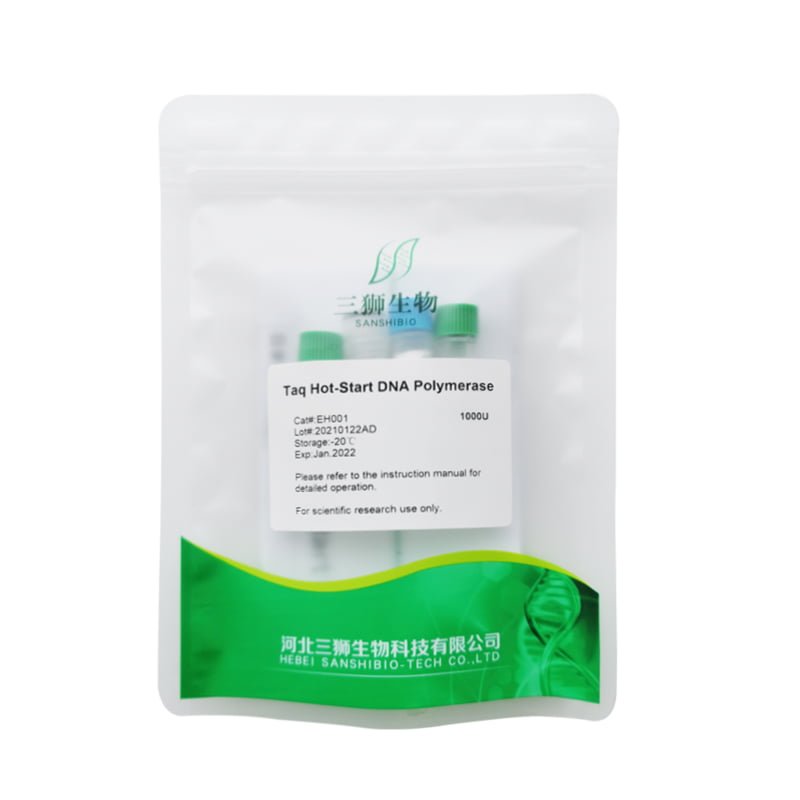
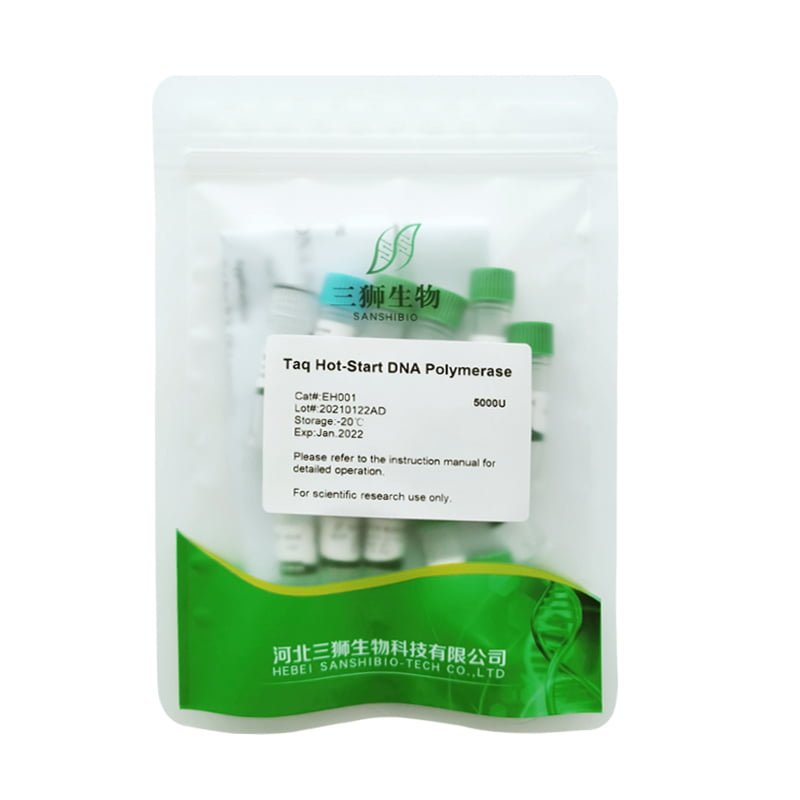
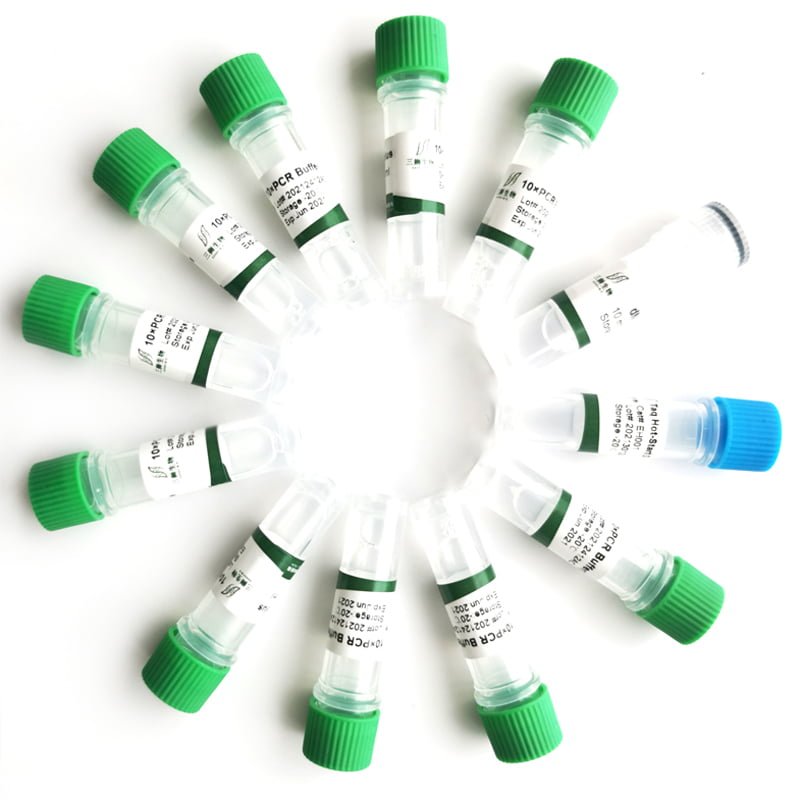
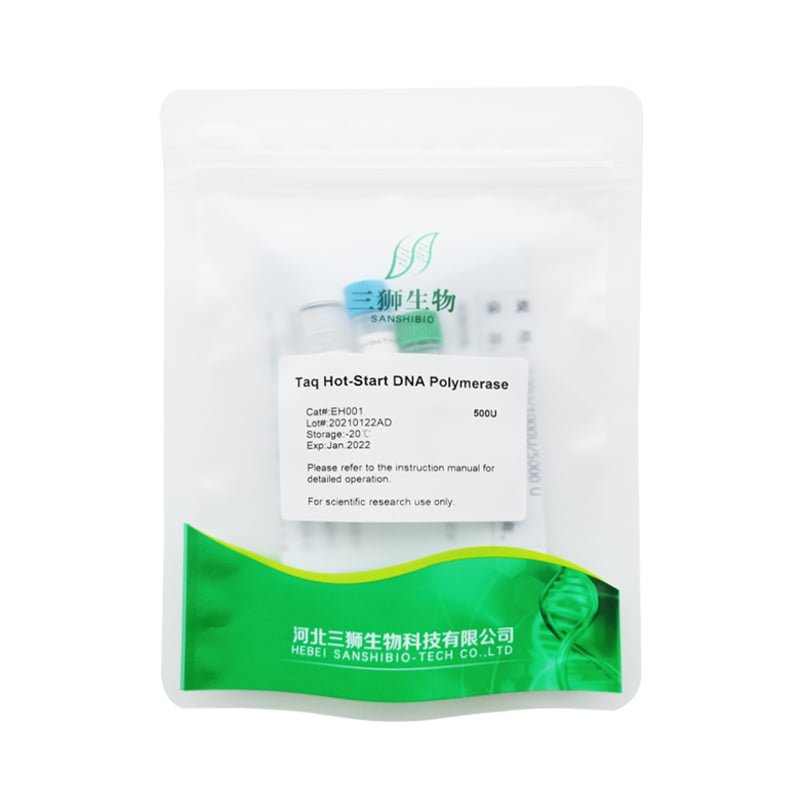
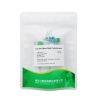
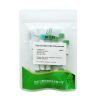
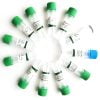
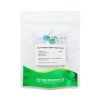
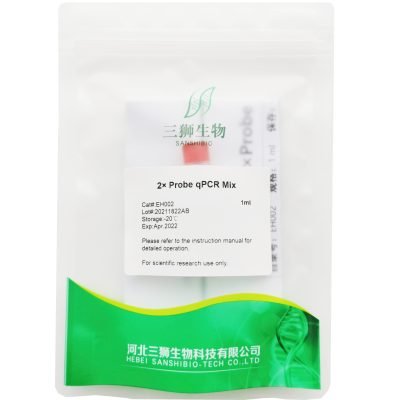
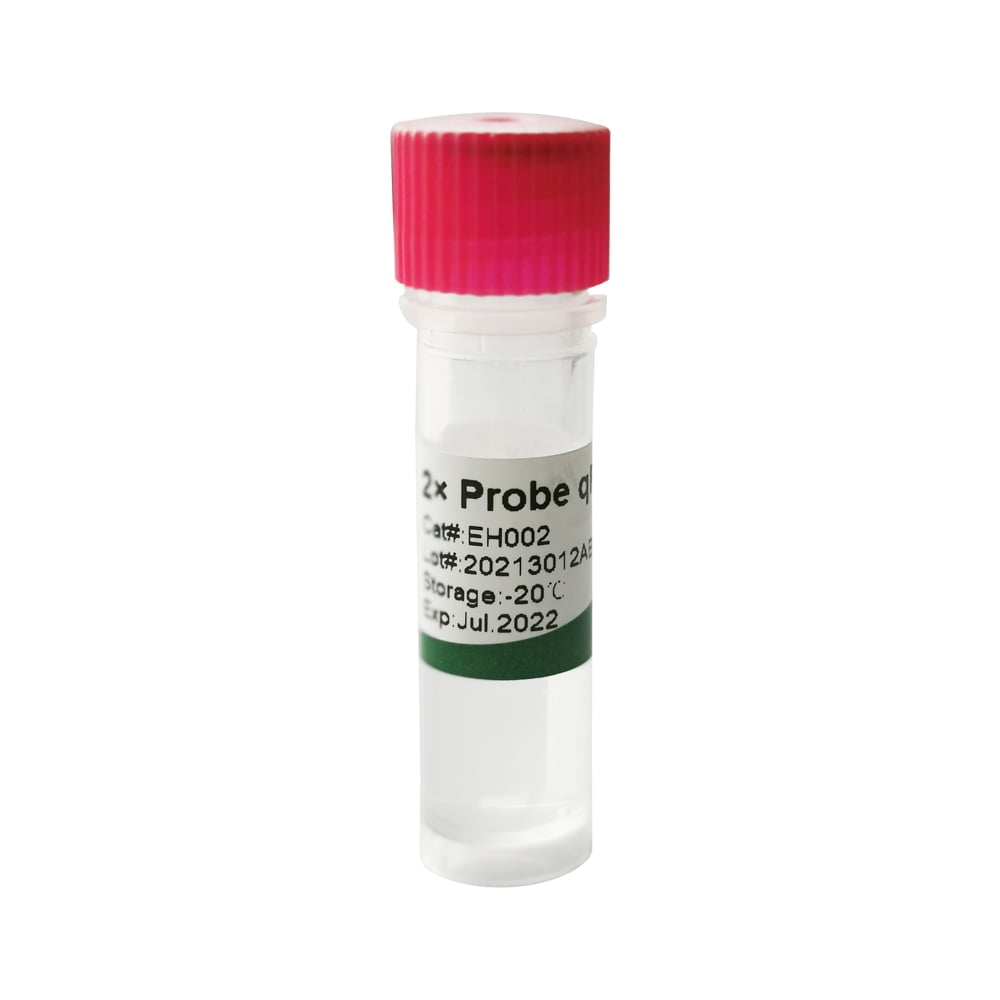
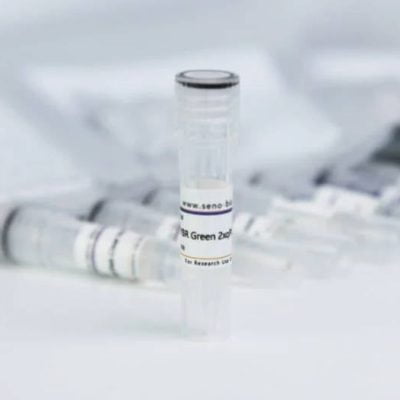
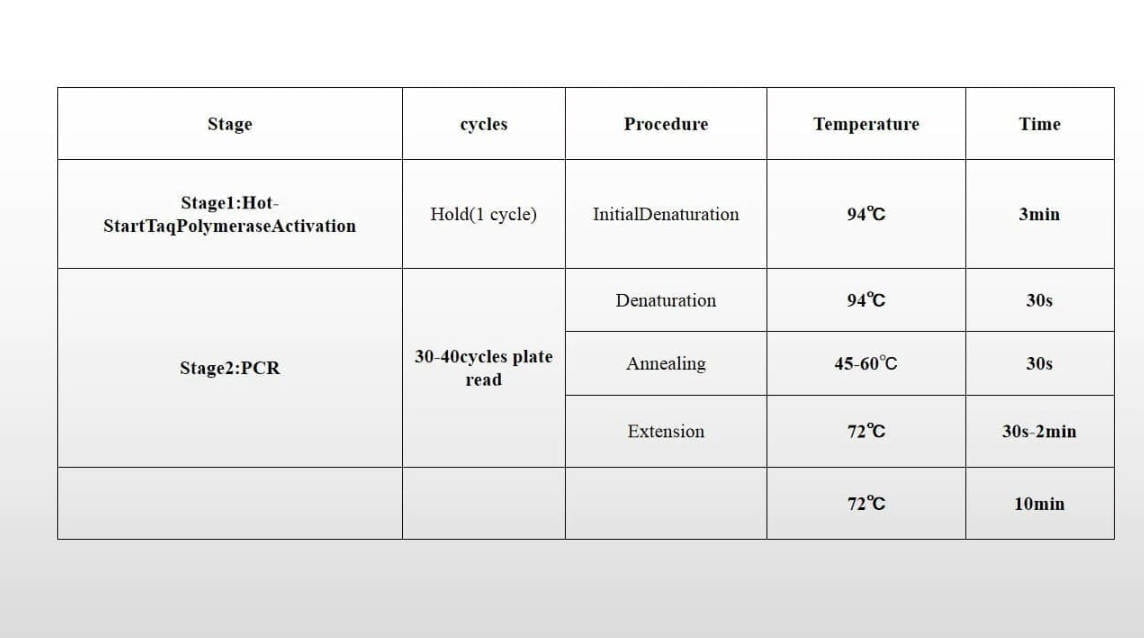
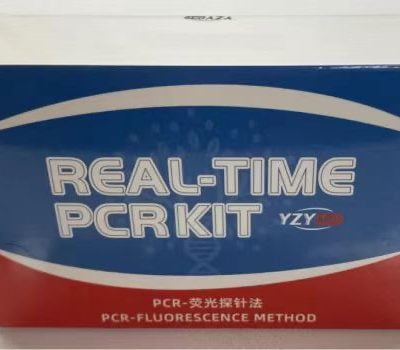
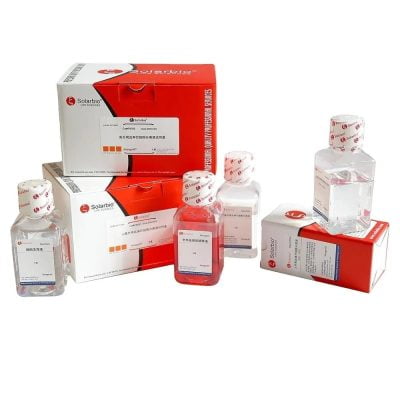
Reviews
There are no reviews yet.